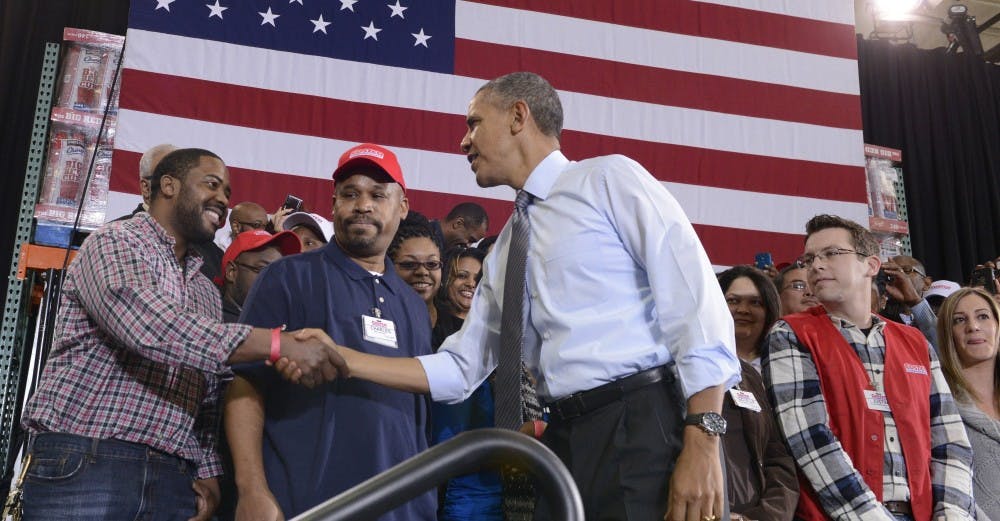On the hot sand of a beach in Rincon, Puerto Rico, the crashing of waves and the swish of palm trees in the wind are rudely interrupted by two individuals at fervent debate over politics.
One of them is me. I am visiting Puerto Rico with my family as we do every Christmas. The other, 60 years my senior, is Ron, a Long Islander who comes to the island for several months in the year with his wife Fran. I always greatly anticipate their presence.
Ron is a staunch conservative, while I lean somewhere to the left, even though I am still solidifying my stance on many issues. Ron and I disagree on most points.
For example, he despises the Women’s Liberation Movement.
"Why should women vote?” he asks rhetorically, his eyes hidden by a black pair of sunglasses. “Why should women drive?”
Fran shakes her head in disagreement, the corners of her mouth pulled downward.
“Men,” he says, “are being mistreated."
Which he explains with his belief that the influx of women into the workforce over the last decades has been a horrible thing for the male wage. This is only one of the many claims and opinions my friend Ron has made.
If you find yourself rolling your eyes at what little you have read of his inner thoughts, you may be wondering why I put up with him for hours on end. I mean, I kept coming back to talk to him and eagerly so. Why entertain ideas so different from my own on immigration, wealth, and gender?
It isn’t that I was trying to persuade him — at his age, his thoughts are set in stone. Nor did I plan on being persuaded, as he often doesn’t use hard evidence to back himself up.
Instead, what I sought to do was understand his point of view.
For example, in the case of the Women’s Liberation Movement, it finally dawned on me that, in Ron’s view, the fundamental unit of society is not the individual but the family — husband, wife and children. The only way for the family to work, he believes, is through the upholding of traditional gender roles. Out of successful families emerges a successful society. I had never thought of this perspective before.
Although I disagreed with Ron, I found his positions fascinating for the simple reason that they were so different from my own. My challenges and questions toward him served only to satisfy the curiosity about his worldview that his words provoked in me. What is it, I thought, that makes someone think that way?
I decided rather than angrily bashing his statements into oblivion, I might stand to gain more from inquiring why he believes them at all. More precisely, I could use the conversation to achieve a better grasp of both sides of the political debate, as well as improve my ability to identify the points in my own arguments that don’t hold up to scrutiny.
What I most appreciated about our discussions is that Ron and I never insulted each other. Sure, he called me naive for “buying into the liberal media,” and I accused him of basing his vast generalizations on one or two anecdotes. But despite all our shouting and defiant challenges, we were respectful, and we each let the other guy talk. Afterward, we would always put our differences aside and have drinks together or go for a quick swim.
From my conversations with Ron, I realized conversation is possible between the two sides of the political spectrum. However, it is only possible if we approach one another respectfully, peacefully and acknowledge the conversation might hurt at times, but the ultimate goal is understanding. We may not ever convince one another, but we will at least make sense of one another and of ourselves.






